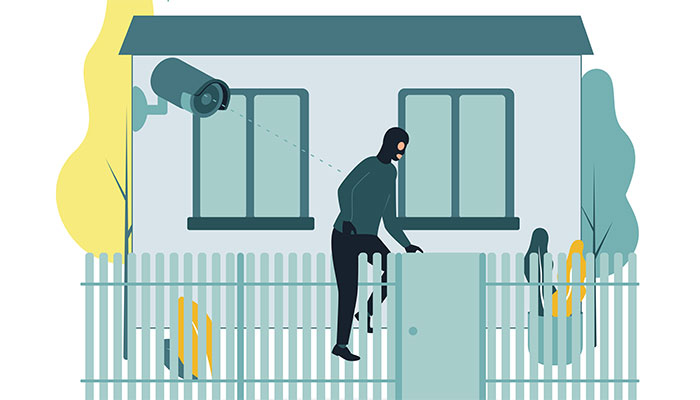|
A "screening" is a general test to look for signs of a problem. Because early detection makes a huge difference in your ability to recover from any disease or condition, Medicare and Medicare Advantage plans use screening tests for many health issues. Often these tests are 100% covered—no copayments. But you must fit eligibility criteria. The criteria usually involve age, symptoms, and/or a family history that puts you at risk. If a screening reveals that you actually have a condition, all subsequent treatments and tests are subject to your usual copayments. Screening tests are used only to help a doctor conclusively determine if there is a problem. All the ins and outs of eligibility are too complicated to outline here. Plus, they can change. Use this table to give you a sense of what's covered. Talk to your doctor about whether a screening test is appropriate. This table lists the most common free screenings.
Want to learn more about staying healthy and aging well?
Give us a call at 203-826-9206.
0 Comments
Do you feel defensive when your kids visit? Notice them exchanging knowing glances when you don't recall a date or name?
Perhaps you feel reluctant to approach them when you do have concerns, because they overreact. So you keep your distance. That isn't good, either. It's a fine line between feeling that your adult children love you and want to protect you, and feeling smothered or even invalidated by them in terms of your competence and self-sufficiency. Noted geriatrician and author Atul Gawande, MD, observes that while adult children worry most about safety, older adults worry about autonomy and independence. Put another way: Adult children think in terms of "caring for." Older adults prefer to be "cared about." How to find a middle ground. Ideally, you and your children work together as a team to maximize your independence and control of your life while also realistically addressing the challenges of aging. The essential ingredient is candid communication that respects each other's concerns. The uncomfortable truth is that adult children often are the first to notice a real problem. But they don't have the expertise to put the signs in perspective. You, like most older adults, may not see the problem because you have accommodated, perhaps unconsciously, over time. Start with an Aging Life Care™ Manager facilitating a conversation. Families who work with an Aging Life Care Manager find that an objective assessment of an expert in aging gives both you—the older adult—and your children a better understanding of how serious any concerns may or may not be. Everyone comes away with a better context for understanding normal aging. An Aging Life Care Manager can provide knowledge and resources, as well as supportive facilitation. This typically results in a more productive discussion of future scenarios. The earlier you have this conversation with your kids, the better. You don't want to have it in the middle of a health crisis. Nor do you want things to escalate to the point that you are avoiding your children. Create a plan for peace of mind. Working with an Aging Life Care Manager, you and your family can develop proactive plans for addressing potential problems while simultaneously ensuring that you get to live life on your terms. Would you like help talking with your kids about aging? Give us a call at 203-826-9206. It might feel scary to tell others if you've been diagnosed with dementia or even just mild cognitive impairment (MCI). Start with those you think will be the most supportive. Perhaps close family and friends.
Common reactions. People will vary in how they respond to the news. Some will be genuinely caring and ask how you are doing and how they can help. Lean into those relationships. Others may respond with denial ("No, not you!" "You're too young …"). They may need to hear some facts about neurocognitive disorders. Some people may react by pulling away. Ouch. This is disappointing. Do your best to not take it personally. They may need time to adjust. Or they may simply lack information about your condition and have unfounded fears. Again, education may be helpful. What to say. Choose a quiet time and place where you can talk one on one. Or you might want to write a letter or email.
Continue to engage with life. You still have the ability to enjoy life and live with meaning and purpose. Stay committed to the hobbies and activities you love. Look for an early-dementia support group. You may find new friends—people who understand what you are going through—and new ideas for living well. Looking for early dementia resources? Give us a call at 203-826-9206. Your health care proxy is an individual you trust to speak for you when you are unable to voice your own decisions: A car accident, surgery, coma, dementia.
In such circumstances, doctors need someone who knows you well and has had conversations with you to guide them in terms of the medical procedures you would or would not want. The "platinum rule." When selecting someone to fulfill this role, you want them to follow the platinum rule: "Do unto others that which they would want to be done to them." Regarding life support, you want your proxy to represent your wishes separate from what they would want for themselves:
A lot of conversation is required about medical care, quality of life, and even what is a "good death" from your point of view. Your proxy needs to know what your priorities would be if the result of a procedure might be life with less quality (e.g., only 11%–28% of older adults survive CPR, and 30% of them end up with brain disability). The duties of a proxy are often short term and in hospital settings. But in the case of dementia, these duties could last for months or years and involve long-term care choices. Beyond someone who understands your values and quality of life priorities, you want an individual who is comfortable talking with doctors and asking questions, and who is persistent and will advocate for your wishes if there is pushback. Also a person who has a steady head during a crisis and can communicate well with your relatives. They don't have to live close by, but they do need to be available by phone. You must name them in your advance healthcare directive, and they must agree to take on this role! You can choose a succession of decision-makers so someone else is prepared in case your first choice is not available. Having two people share the role, however, is not recommended. It can stall a decision that needs to be made quickly. If you are a "solo ager" (no children). Most people pick a younger family member. (Peers may not be available because of their own health challenges.) If you do not have younger relatives you want to entrust with this responsibility, [tacm] can guide you in selecting a professional and refer you to an attorney to draw up the legal paperwork. Want help picking a proxy? Give us a call at 203-826-9206. Life plan communities—sometimes called "continuing care retirement communities" (CCRCs)—are private communities that offer residents a full range of care levels, depending on need. For those in independent living, amenities such as a golf course, gym, pool, and tennis and pickle ball courts are typically provided. Some communities even offer college-level classes, a salon, and grocery store.
For those needing more care, there are advanced support facilities on campus for assisted living, memory care, and skilled nursing care. Residents move among the facilities as their care needs change. One chief advantage of a CCRC is that a couple can remain on the same campus even if one of the pair eventually needs to go up in level of care. (The monthly maintenance and service fees go up when care needs go up.) Generally, the cost of care in a CCRC tends to be below "market rate" (what would be charged outside the community). Are there any drawbacks? While a CCRC is an attractive blend of housing and medical care, it's not for everyone. Applicants must complete a medical exam to determine their level of care, as well as a confidential financial assessment. The entry fees are steep. (According to AARP, the average is $402,000 but the range is wide: $40,000–$2,000,000). Consider: This is not a real estate purchase. You don't own your domicile. You can't sell or rent it. You might think of a CCRC as a lump-sum payment of long-term care insurance with housing included. Be aware: You will be wedded to the community for your future care and housing needs for many years to come. In that light, it's prudent to check the financial solvency of the organization that owns it. Also the quality of the care they have been providing. As you can imagine, the contract is full of details. As a rule, the lower the entry fee, the more you will pay in monthly fees. Check carefully the terms of receiving a refund if you decide you don't like the community or need to leave at some point. You want to compare contracts meticulously when you are shopping. It's essential to get professional advice. A CCRC may be exactly the support you are looking for, but these are very complicated arrangements.
Want to explore alternatives as you age? Call us, the experts in aging well: 203-826-9206. Can two households be better than one? In a trend called "living apart together" (LAT), a growing number of older adults are experimenting with committed relationships that also allow for autonomy.
These are people who prefer intimacy and companionship in their lives. At the same time, marriage—or even living together—brings more entanglements than they want to take on. For instance, some have already nursed a spouse through dementia or cancer and done the "in sickness and in health" role; they don't care to do it again, especially when the window for good health may be limited. Instead, they agree to be romantically exclusive but keep their own homes. They may eat most dinners together but sleep over only a few nights a week, alternating houses. Here are some of the benefits such couples describe:
Experience suggests interested couples should discuss these issues first:
Looking to age on your own terms? Consult with the experts in aging well: 203-826-9206. If you are used to having an "annual physical" and ask for that, original Medicare won't pay for it. That is, original Medicare won't pay doctors to do a general physical exam "to see what turns up"; you'll pay out of pocket. (Medicare Advantage might have this as an "extra." Check with your plan.)
Medicare does offer two types of "wellness visits" Medicare is invested in prevention and in managing chronic conditions, but be careful about the words you use when making an appointment. "Wellness visits" are available through original Medicare and Medicare Advantage. Beyond measuring height, weight, and blood pressure, however, these visits will be more of a conversation than an examination of your body. The Welcome to Medicare visit happens only once The Welcome visit is available only the first twelve months after you start Medicare. Think of this visit as setting your baseline, with future annual wellness visits serving as updates of key risk factors. This first visit covers many of the same topics as the annual wellness visit. But it's a more in-depth look at your medical history, your family history, and your lifestyle habits and risk factors. It also includes extra observational assessments concerning things such as vision, hearing, balance, and your risk for falls. The annual wellness visit includes discussion of the following:
These appointments rely on your self-report of how you are doing and what you are doing. From this discussion, you and your doctor may agree on plans to lose weight, quit smoking, or get more exercise over the coming year. And the doctor may order screening tests to rule out other issues. You may also choose to discuss your preferences for end-of-life care so your doctor understands your wishes should you ever be unable to speak for yourself. If you have a physical concern at any time By all means, make an appointment if you have worrying symptoms. Get them checked out! Just don't plan to bring up new aches or pains in the context of a wellness visit. You may end up responsible for 100 percent of the visit. Want to learn more about Medicare and wellness? Give us a call at 203-826-9206. We tend to think friendships should grow organically. They don't. Particularly in our later years, when we often lose friends—to death, illness, or moving away—we need to be much more intentional about making new ones.
This is especially so for "solo agers," those without children and grandchildren. The younger generations in the family typically make up a large portion of the average older adult's social network. Making friends requires time and effort. Research has shown it takes fifty hours of contact to become casual friends. Bump that to ninety hours for a real friend, and 200 hours to cultivate a close friendship. Here are some tips to ease the process:
While you are at it, it doesn't hurt to look for multigenerational opportunities. Establishing bonds with people in their middle age or younger can broaden one's perspective on life! And may help you feel more connected to the future. Having a younger friend may also come in handy should you need a physical favor, such as moving a chest of drawers. Ready to interrupt your isolation? Give us a call at 203-826-9206. We are experts in the process of aging well. When Medicare first began in 1965, the idea was that it was for everyone over age 65, not just those who were poor. There would be no stigma.
Things are different now. We live longer. Medical costs are rising. In 2003, Congress decided that those with higher incomes should chip in extra to share the load. This extra is called the "income-related monthly adjustment amount" (IRMAA). There are two areas of Medicare coverage that incur IRMAA fees:
If the Social Security Administration (SSA) determines your income qualifies, it will add a fee to your monthly premium for Medicare Part B and another for prescription drug coverage. These IRMAA fees are deducted from your Social Security payment each month. What is "higher income"? The SSA looks at your adjusted gross income from two years ago (e.g., from 2022 for your 2024 rate). It adds back in a few tax deductions such as IRA contributions or Social Security payments. This usually higher amount becomes your "modified adjustable gross income" (MAGI). In 2024, IRMAA will likely apply if your 2022 MAGI was more than $102,500 for an individual or $205,000 for a married couple. A caution about special circumstances: If you have a one-time bump in income (e.g., from the sale of your home or business), you may be assessed a one-year IRMAA fee. Having trouble paying your IRMAA?
Have questions about Medicare? Give us a call at 203-826-9206. Seniors experience property crime thirteen times more often than violent crime.
Burglary is the most common. (Interestingly, it typically occurs between noon and 4:00 pm!) The average loss is roughly $3,000, although that does not account for the emotional impact: A profound sense of violation and vulnerability. October is Crime Prevention Month. There are things you can do! The yard. Eliminate dark spots with motion-sensor lights at all entryways, walkways, trash enclosures, storage sheds, and garage. Plant prickly plants (e.g., roses, cacti) under windows to make them less inviting. Trim back bushes that might provide a hiding place. The mailbox. Reduce the number of hours checks are accessible in your box. Arrange for direct deposit (incoming) and paying online (outgoing). Or post checks in a public mailbox. Personal habits. Lock all doors and windows, even during the day. Draw the blinds at night so burglars don't get tempting views of your laptop or flatscreen TV, nor intimate knowledge of who lives in your home. Once inside, thieves look for high-value, grab-and-go items, so keep car keys and jewelry out of sight. Make it look like you are home when you are away: Halt newspapers and mail. Install smart switches or timers on indoor lights. Ask a neighbor to park a car in your driveway. Technology
Safety extends beyond health and wellness. We can help. Give us a call at 203-826-9206. |
AuthorLeslie Alin Tewes is a Geriatric, Disability & Medical Care Manager; Elder and Adult Care Advocate; Quality Improvement Specialist. Archives
July 2024
Categories |












 RSS Feed
RSS Feed

